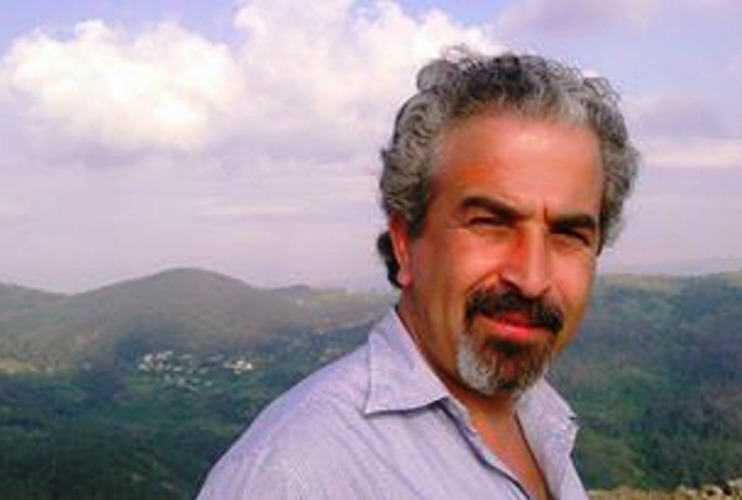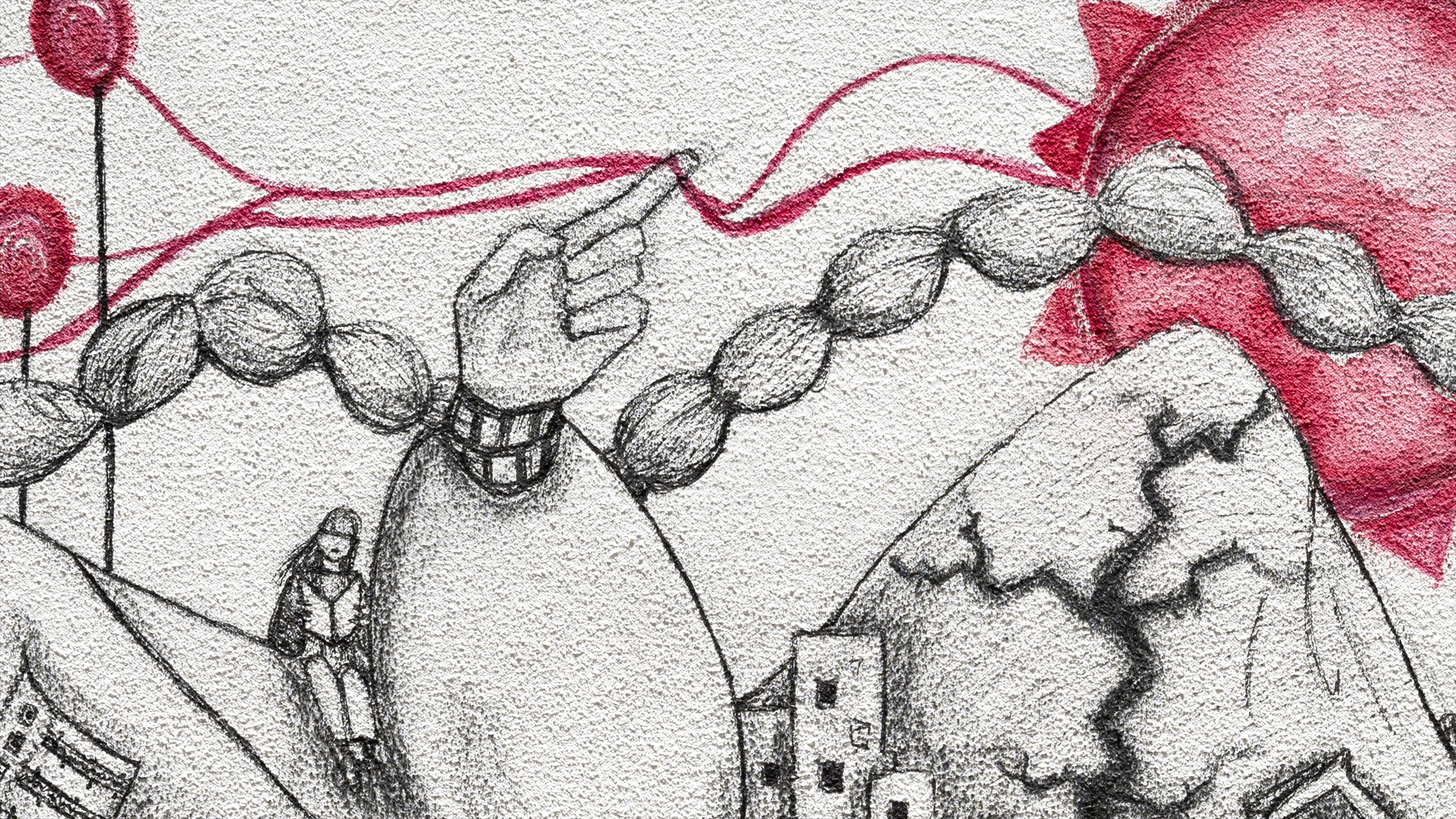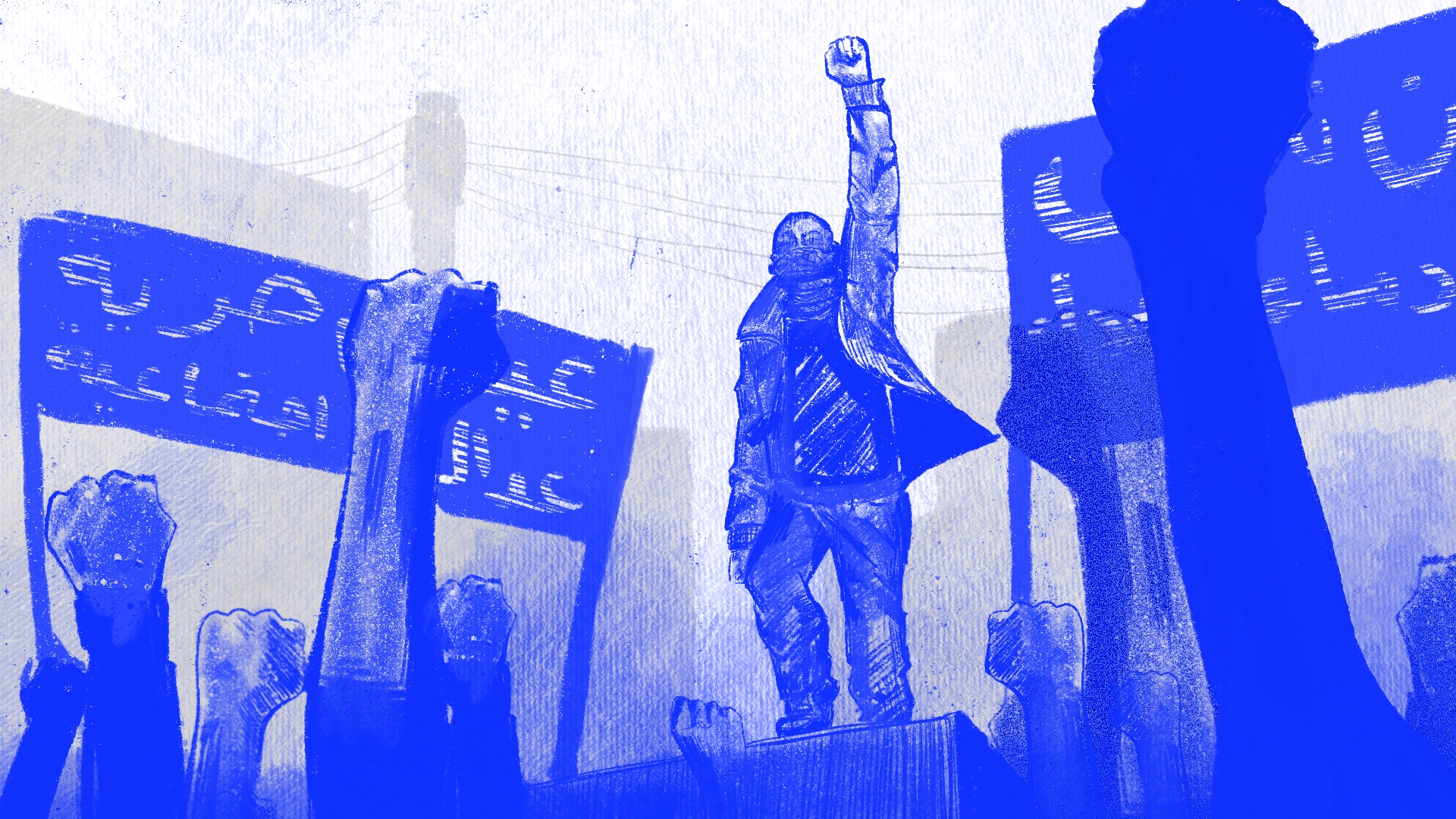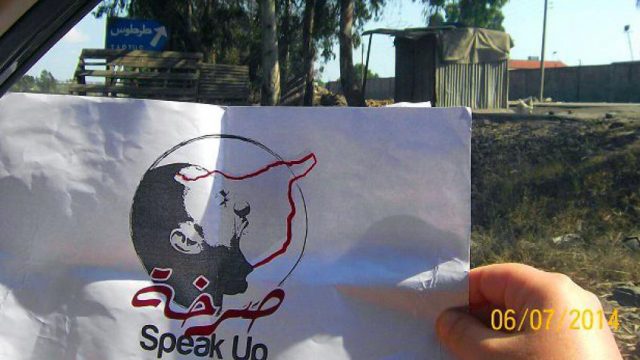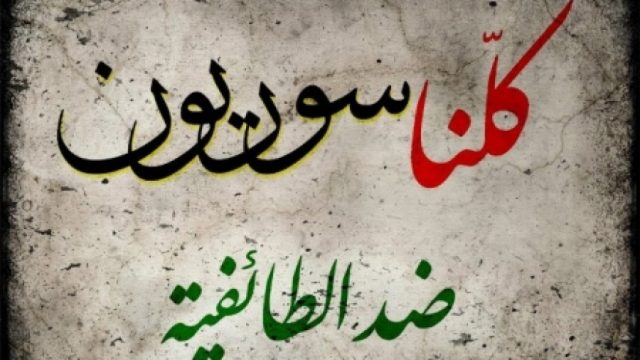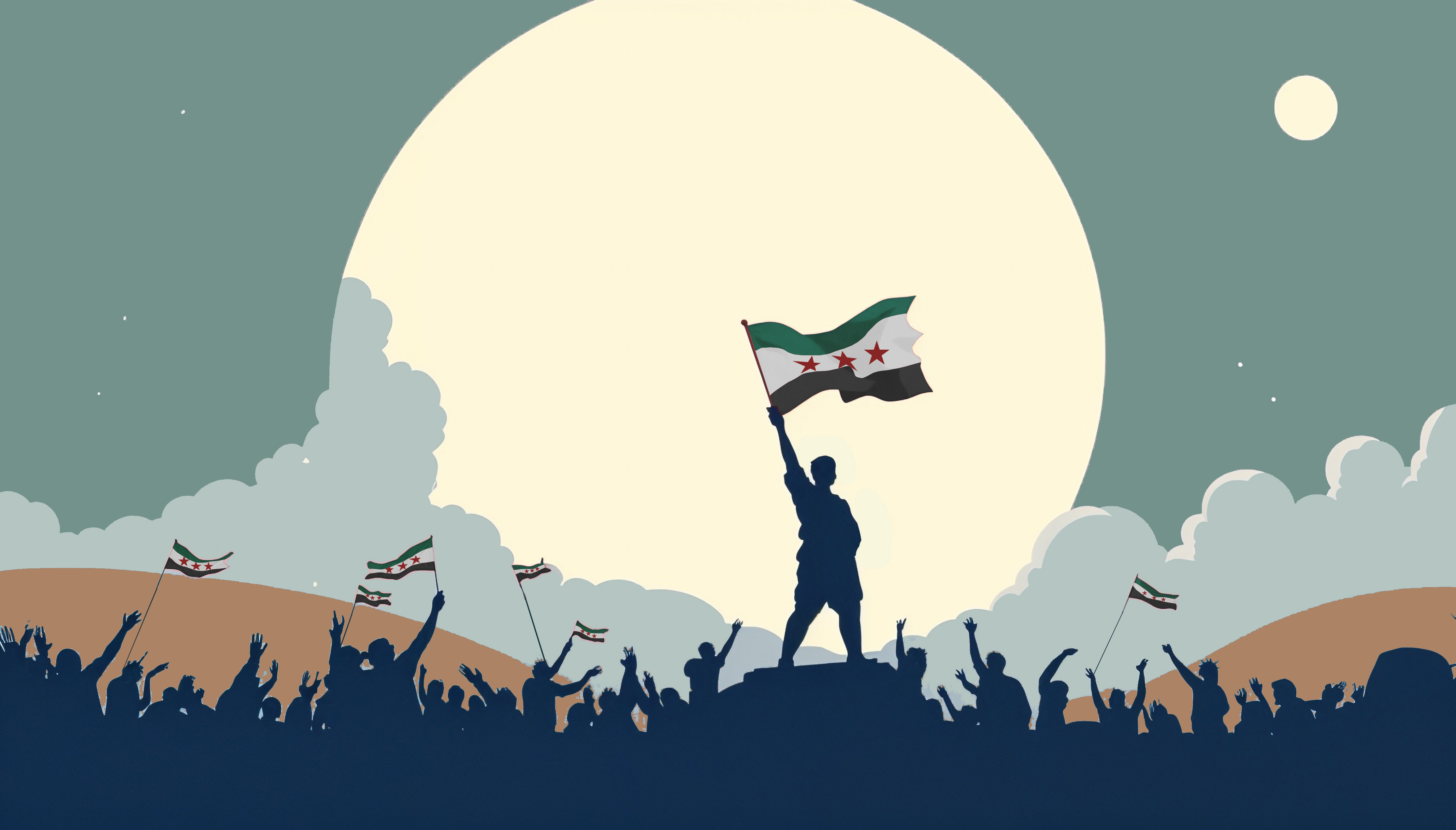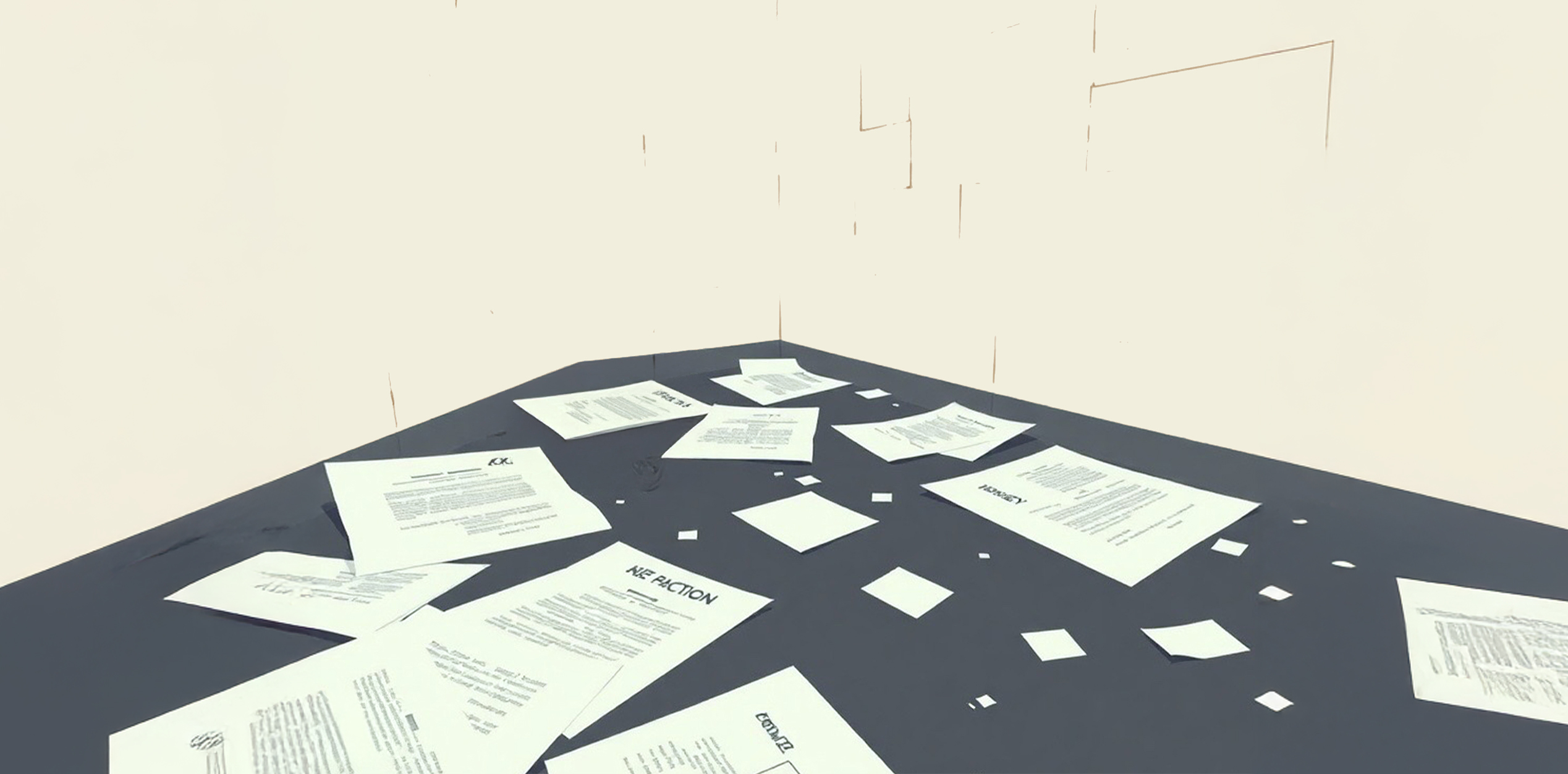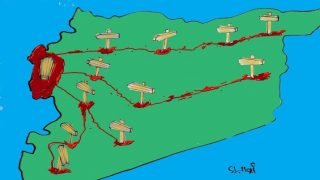"After more than ten years of dying for Syria, Bashar al-Assad left us in disgrace, fleeing with his wealth and abandoning a country that gave him everything. What was the point of all those martyrs who fell? Our young sons—hundreds of them—died for nothing." These are the words of Laila Ahmed, a former health sector employee from the Baniyas countryside and the mother of two young men who went missing during the war. "Today, our sons are labeled as terrorists, thugs, or casualties of the new regime. It is a state of anger that will not be repeated."
Her sentiment captures the profound disappointment and anger felt by the people of the Syrian coast. Mona Ibrahim, an Alawite woman and former education sector employee, echoes this despair: "Every day, I wake up to a new fear. I feel as though I am living in a never-ending nightmare. Since the regime's collapse, my fears of revenge have only grown. I hear stories about opposition groups threatening the Alawites, and I wonder how I will protect my family. We are human beings with dreams and hopes, yet fear has taken control of our lives. I do not know what tomorrow will bring, and I feel that our future is dark."
Scenes from the disasters. Qardaha and its countryside
27 July 2023
These feelings of grief have made the sense of "deception" widespread in the Alawites Mountain, some have taken down pictures of their sons from the streets—images that once filled public spaces under the title "Martyr for the Sake of the Homeland." Charitable organizations hosting condolence gatherings have also seen the removal of many victim memorials, an attempt to avoid drawing the ire of the HTS and their followers. Many of these victims and their families had believed, perhaps briefly, that they were defending a homeland, not an individual.
Amid this pervasive sense of betrayal, fears of revenge loom large. Many women live in a constant state of anxiety, plagued by uncertainty and dread over potential repercussions. This is a society shaken to its core, where many who once saw themselves as integral to the homeland and defenders of the "state"—not just the regime—now feel ostracized and excluded.
This shift in identity is particularly pronounced among younger generations who grew up during the conflict. Many of them grapple with questions about their future and their place in society, especially in light of widespread rumors about exclusion from government or military employment.
The previous concerns come despite the fact that the fourth week of the sudden regime change in Syria "ended relatively well." There were no major massacres and no torrents of blood that the loyalists of the former regime had always talked about and stressed would be present if the Assad regime fell. However, this achievement, which is credited to the new de facto forces in Damascus and with them the noticeable international arrangements so far, does not negate the fact that it is too early to talk about a break with the previous Assad era, especially with the "repetition of dozens of individual incidents" every day on the geography of the Syrian coast, Homs, and the Hama countryside, the latter witnessing the largest proportion of these incidents due to the geographical sectarian contact borders with the "enemy Syrian brothers" until 7 January 2025.
Some have taken down pictures of their sons from the streets— images that once filled public spaces under the title "Martyr for the Sake of the Homeland."
Despite the presence of promising introductions in the discourse of the new authority, varying in degrees between the rhetoric of Sharaa (formerly al-Julani) and the members of his government who came from Idlib to rule Syria, and the practices of the members of the "HTS and General Security" in the street, the Alawites' fears remain legitimate amid the fragile state of Syrian stability currently in the absence of all forms of the state. Furthermore, the exacerbation of the feelings of "we are the ones who achieved victory" by the factions over the former regime and its social and military bloc may pose new threats to the lives of the Alawites, who are seen as the "basic support of the regime." Wise people from all sides are calling for the presence of the new state in accountability and punishment; otherwise, we risk returning to the law of the jungle once again.
The People of the Syrian Coast and the New Authority
This exclusionary discourse is spreading at a time when the Alawite sect on the Syrian coast, which constitutes about 10-12% of the population (as indicated in Jean-Claude Van Damme's book The Struggle for Power in Syria, 2010), is experiencing a state of tension and anxiety in light of the current circumstances. This state is not merely an echo of political events but rather an expression of deep frustration and growing anxiety that is seething in the souls of the sect's members.
Most of the people of the Syrian coast belong to economically crushed social classes—farmers, employees, soldiers in the former Syrian army and security forces—and other Syrians have always considered them the social base supporting the Assad regime. This is a kind of collective injustice, since the former regime was the product of itself, its tools, and its mixed elements from all Syrians.
Sahel Protests. Repression Prevail
08 December 2023
Engineer Mohammed Al-Khayr, 43 years old, expressed these sentiments during a meeting at a civil youth gathering held in Latakia that brought together young activists, both men and women, to discuss Syria’s new phase: “We are facing a real dilemma represented by the new regime’s reading of the Syrians based on a false logic, which is the logic of the regime itself—the logic of the minority and the majority, the logic of the believers and the infidels.”
This means excluding the concept of citizenship from the upcoming efforts to build a Syria free from tyranny and the ruling clique. “All the fear is that we will reproduce a dictatorship in a new way that will last for another fifty years,”
Muhammad continues: “There are no clear criteria for who will enter the new authority structure, given that this authority is originally new to the scene of managing an entire state after it used to rule a small area (Idlib) that was largely socially one-colored. We have seen dozens of people who benefited from the previous regime leading the discourse of the new phase, including not only clerics but also employees in unions and former Baathists. This rapid change raises doubts about their intentions and their ability to truly represent the interests of the Alawite community.”
There are also those who refuse to cooperate with the new regime for reasons tied to the collective memory of the group. "The new regime came to power by chance to lead the country, and at the same time, it was classified—and still is—on the international terrorism list, with the foremost example being the 'leader' Ahmed al-Sharaa,” engineer Mohammed continues. “The Alawites among them suffered a number of well-known massacres. The memory of the Adra al-Omalia events and the Tawbah prison remains vivid in people's minds, raising concerns that history might repeat itself, especially with the easy arrival of the Authority's cars to all Alawite areas."
Daily events report dozens of violations and murders across the region. While the new regime blames "the remnants of the regime and the lackeys of Iran," as well as armed gangs, and claims that the Authority and Public Security are working to control these incidents, the residents' fears continue to grow day by day.
There were no major massacres and no torrents of blood that the loyalists of the former regime had always talked about and stressed would be present if the Assad regime fell.
In an attempt to control what can be controlled, villages and neighborhoods in cities have formed popular committees to protect their areas from these violations. However, there is a significant problem, as Jaafar Haloum, a university student from the “Shamali Al-Ramel” neighborhood in Latakia, explained to SyriaUntold. “The patrols affiliated with the authority do not cooperate with us in proving that they are actually patrols affiliated with the authority” he said. “What happens is that some individuals wear the official uniform of the authority and public security while covering their faces with masks. These people come to the neighborhoods under the pretext of inspection, often at night, without official documents or coordination with community actors such as mukhtars or committees. Several problems have arisen that could have been avoided if these individuals had proper documentation for their missions. It seems that we have returned to the era of the dawn visitors once again.”
Jaafar also pointed out the varying conduct of the authority’s patrols. “Some of these patrols are very polite and show a high degree of civility, but others provoke people by questioning them about their sects, their work in the army, and other sensitive topics. This is somewhat understandable given that the organization includes members of various nationalities, including foreigners unfamiliar with the nuances of Syrian society.”
The Specter of Hunger
In addition, the Alawite regions, like many other Syrian areas, are suffering from a severe shortage of basic services such as electricity, water, and unpaid salaries for former soldiers and non-retired employees. This contributes to the worsening crises facing Syrians in general, and the Alawites scattered across the mountains in particular, due to the lack of any alternatives, and the depletion of what little was available over the past decade.
Ali Yassin, a young man who recently graduated from the Faculty of Engineering at Latakia University (formerly Tishreen), shared with SyriaUntold: “There is economic tension resulting from the rise in the prices of basic materials, such as bread, the price of which has reached five thousand Syrian pounds (about a third of a dollar) for a bundle of 12 loaves, at a time when people have not received their twenty-dollar salaries. The average family needs at least ten dollars per month for bread and gas (a canister currently costs 250 thousand or more). This price liberalization means that certain hunger will set in for those who have no sources of income other than state salaries, and they are the majority of the people of the mountain.”
Ali added that the high cost of transportation has made it impossible for families to send their children to schools and universities. “The cost of transportation between my village, Bustan al-Hamam, and Baniyas reached 16,000 liras ($1) for only ten kilometers, meaning that any student needs at least 50,000 liras per day, which is impossible for any family.”
In addition, the collapse of the Assad regime has disrupted all types of economic activity in the mountains related to agriculture, including tobacco, a major source of income for mountain families. Qais al-Ibrahim, a farmer from the Baniyas countryside, said: “The Regie did not receive the entire tobacco crop from us this year, and those from whom the Regie did receive it were not paid their full payments. This has led to an increase in the supply of Arabic tobacco in the local market and a significant decrease in its prices, in addition to the absence of traders from other areas such as Hama. The same situation applies to olive oil and grain producers.”
These economic and social challenges facing Alawite communities add a new layer of complexity to the situation. As economic conditions deteriorate, many find themselves facing increasing living difficulties, which fuels feelings of frustration and despair, while also heightening the likelihood of external interference within these environments.
Members of the Old Army and the New Army
“Like others, I went down at four in the morning to the center, only to be surprised by hundreds of others already waiting,” Ali Muhammad (a pseudonym), a student officer at the Military College in Homs who settled at the settlement center in the city of Jableh, says. “At first, they brought us in and asked us several questions about whether we had participated in combat operations. We told them that we were students in military colleges. They photographed us in the manner of prisoners. Then they left us after taking the information that they supposedly already had in the records of the military colleges.”
Ali adds: “I spent three years and graduated from college. Now I have to go back to square one in my life, and there are hundreds of others like me. Why aren’t we added to the new army forces? Is it reasonable that a fighter belonging to an armed organization has priority in joining a national army and that a foreigner can be preferred over us, the sons of the homeland? So far, we believe that we will not be contacted again and that we will be left to our fate.”
All the fear is that we will reproduce a dictatorship in a new way that will last for another fifty years.
Ali's case is one of hundreds of similar cases in which officers and non-commissioned officers from the former Syrian army surrendered themselves to members of the General Security or the Authority without being subjected to harm or insults. On the other hand, there are various cases that can be considered individual, following the center concerned with incidents involving verbal and sectarian insults and abuse. The social and political transformations the country has witnessed raise questions about how to rebuild trust between different communities and how to deal with the painful past.
In cases of arresting senior officers who participated in combat battles, these figures are often absent, as many local rumors have circulated about them fleeing to Russia via Hmeimim Airport. In an incident that resulted in the death of both Authority members and civilians, the killing of a civilian in the village of Khirbet al-Ma'za led to a clash with the residents after a patrol affiliated with the Authority attempted to arrest Muhammad Hassan Kanjo, the military prosecutor at the military field court, who is responsible for the killing of hundreds of detainees in Sednaya prison and elsewhere.
The Role of the Alawite Clergy is Clearly Evident
Throughout the years of its rule, the former regime did not prevent the Alawites from practicing their religion or religious rituals but rather worked to rearrange social and political priorities. The Arab nationalist idea and the theories of Arabism became fundamental references in daily life, which caused religiosity to occupy a secondary position in the Alawite community's discourse. This dynamic contributed to strengthening the party structure of the Baath Party, which led to the marginalization of the role of religious institutions and Alawite social actors.
“The role of the clergy in this period has become subservient and mercenary to the authorities, as they have become dependent on the regime to secure their interests, and thus have lost their independence,” explains Samer al-Ali, a civil activist based in Damascus. “The production of the clergy in the true sense of the word in the Alawite community has stopped, to be replaced by a segment of demobilized army recruits who found themselves in religious positions without the necessary qualifications or knowledge. This transformation has led to the dismantling of the traditional structure of religious authority, which has weakened the influence of the clergy in society and led to changes in the social and political roles within the Alawite community.”
As economic conditions deteriorate, many find themselves facing increasing living difficulties, which fuels feelings of frustration and despair, while also heightening the likelihood of external interference within these environments.
“With the fall of the regime, the closed doors of local communities were opened, and Alawite clerics emerged as expected key players in these communities, given their long-standing role in providing religious faith to male members of the sect,” Ahmad Muhammad, a 23-year-old community activist from Jableh, told SyriaUntold. “This emergence necessarily raised concerns about the expansion of religious control in an environment that was already open to life and about the use of Alawite religiosity as a tool in the ongoing Syrian conflict in various forms.”
The sect issued a number of statements in the wake of Assad’s fall. The contradictions between one statement and the next were clear. In some of them, the names of the signatories were not shown, which left people confused about who was carrying out these actions. In SyriaUntold’s communication with a number of clerics, it became clear that the goals were noble, and among the proposed ideas that were not agreed upon was the idea of issuing a general amnesty.
“The aim of establishing this council is to revive the religious identity of the Alawites and strengthen their role in society, away from the political dominance imposed by the former regime,” said Dr. Mohammed al-Khayr, who is part of a broad group working to establish a Supreme Alawite Islamic Council (currently under construction). “We believe that religion should be a unifying factor, not a divisive one, and that there should be a space for the free and open expression of beliefs. We are fully aware of the concerns that may be raised about using religion as a means of control or as a tool in the current conflict, but we are working to emphasize that religion should be a source of peace and tolerance, not a tool for conflict. Therefore, we seek to form a council that represents all Alawite sects and is able to dialogue with the rest of the Syrian components.”
“We are living in a sensitive phase that requires us all to be careful and build on the foundations of mutual understanding and respect,” adds Al-Khayr, whose grandfather Mohsen was the Alawite chief justice in the 1950s. “Rebuilding trust between the sect and Syrian society as a whole is crucial. We need to find channels to communicate with others and show that we have a vision for a shared future that can accommodate everyone. We hope to be able to overcome the challenges we face and be part of the solution in the new Syria.”
Fear of International Interventions
Amidst the above conditions, there are other fears of international intervention in the Syrian coastal areas if the relationship with the new de facto forces in Damascus takes a negative turn, mainly due to the lack of transparency of the Authority in many issues related to the Alawite sect, the first of which is related to the fate of the elements of the dissolved Syrian army. Or if the remnants of the former regime succeed in attracting supporters due to the Authority’s failure to move quickly towards all Syrians, not just the Alawite community.
A former officer in the Syrian army (who preferred to remain anonymous) told Syria Untold that “there are nearly half a million soldiers from different Syrian sects who were in the army, officers, individuals, and leaders, some of whom participated in the battles that took place in the past years and worked as a national army that fought terrorism that did not leave the shoulders of those who are today, by chance, in the leadership of the country. If these people are not reinstated in the army - at least those whose hands are not stained with the blood of Syrians according to specific, transparent, and highly accurate standards - this may open the door to investment in these expertise by foreign powers, whether Turkish, Iranian or otherwise, for the simple reason of hunger that will strike them with the cessation of their already modest salaries.”
The officer (from the Naval Artillery Corps) added: "The silence of the new regime on the actions of the Zionist enemy in this humiliating manner makes many doubt the national position of the new regime, which is originally an international arrangement aimed at erasing Syrian effectiveness in the region and turning the country into a monster that conforms to the aspirations of the enemy. Therefore, moving towards a pluralistic national partnership is a suitable way out for the new era from dependence on foreign servitude."
In addition to this, there are serious Turkish attempts to attract the Alawite sect into its orbit. In the third week of the fall of the regime, a Turkish delegation from the province of Antakya came to Latakia and met with a number of men from the sect who belong to religious and non-religious movements with the aim of testing the Alawite pulse regarding Turkish perceptions related to the Syrian coast and perhaps with the intention of annexing it to Turkey or working within the soft Turkish policy to push the Alawites to seek Turkish protection.
Likewise, there are also Alawite movements that demand such international orientations amid great concern about the issue of "individual actions" that continue and result in the killing of members of the sect who are not at fault and have no connection to the previous regime. While the Authority accuses the remnants of the regime and armed gangs of these actions, the responsibility for security and safety falls on the Authority, which must at the same time participate with the local community to control these cases.
The return of state agencies, including the police and judiciary, is an urgent task that must be given the utmost importance, instead of preoccupying people with amendments to previous curricula, for example!


